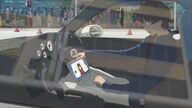But there are some aspects worth thinking about.
In the future, avatars in the virtual world may have the same rights as natural persons in the real society. Assuming that natural persons have authorized/entrusted a lot of work to virtual avatars, how to regulate the behavior of avatars and implement supervision?
In the real world, there are natural firewalls for information flow: language and region, so the cost of spreading disease rumors is very high. Even if there is an epidemic or harmful false news in a certain tribe of human beings, it can be naturally eliminated in the process of spreading, but The rapid flow of information at low cost brought by the network society will quickly bring rumors to any corner, causing an impact that cannot be ignored. If the system is designed to reduce such threats.
For the seamless connection between the network and reality, we need to solve basic problems such as mobile terminals, bandwidth, traffic costs, human-machine interfaces, etc., to achieve the goal of never dropping the line between people and networks.
When I was at State Street, I was told: Good computer security design
is to maximize the time cost of intrusion, slow down the intruder's time, and gain valuable response time.
Security protection should be like an onion, layered .
Each area has blocking measures, such as firewalls, that help keep hazards within a certain range.
Do a good job of normal monitoring and record any behavior to help expose the intruder's tactics and whereabouts.
View more about Summer Wars reviews











